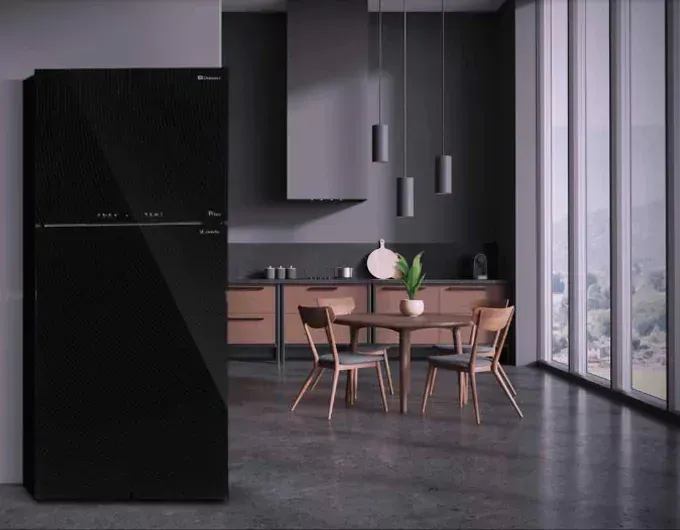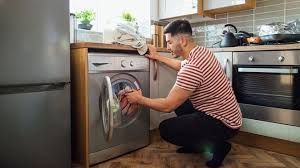The Complete Guide to Refrigerator Repair: Typical Problems & Easy Solutions
The mainstay of contemporary kitchen convenience, refrigerators allow us to enjoy the luxury of keeping perishables and guaranteeing that our food is safe to consume. The way we keep and manage our food supply has been completely transformed by these technical wonders, with their complex processes and elaborate systems. Refrigerators are not immune to the effects of aging and regular usage, despite their high efficiency and dependability. Like any mechanical equipment, they can break down due to wear and tear, which can cause a variety of malfunctions that can cause anything from little annoyances to significant interruptions to our daily routines.
This comprehensive book is a road map to empowerment for homeowners facing the difficult chore of bringing their reliable appliances back to optimal performance, not just a list of refrigerator repair methods. We shall examine the complex dance of refrigeration physics in these pages, deciphering the mysteries of temperature differentials, defrost cycles, and compressor hums. We'll learn to recognize the warning indications of typical refrigerator problems, such as frosty buildups or unsettling rattles and hums, and equip ourselves with the knowledge and skills required to solve them quickly and efficiently.
Prepare to go off on a journey of empowerment and discovery, dear reader, led by the knowledge included in this extensive book. As we traverse the dangerous seas of refrigerator repair, let's equip ourselves with information and self-assurance knowing that, with a little time and effort, we can overcome even the most difficult faults. Join us in taking back our kitchen kingdoms and making sure that our refrigerators always support us when we cook, protecting not just our food but also our mental health.
Understanding Your Refrigerator:
It's crucial to comprehend the fundamentals of your refrigerator's operation before beginning any troubleshooting. The majority of refrigerators function using the vapor compression refrigeration method. They are made up of a compressor, evaporator and condenser coils, refrigerant, and a number of sensors and controls. By use of the condenser coils, the compressor forces the refrigerant to collect heat from the refrigerator's interior and release it outside. After cooling down, the refrigerant passes through the evaporator coils, absorbing heat from the interior to maintain the cold contents.
Refrigerator Issues and Solutions:
Refrigerator Not Cooling Properly:
- Check the Temperature Settings: Make sure you have adjusted the temperature settings correctly. Inadequate cooling might occasionally result from unintentional modifications.
- Inspect the Condenser Coils: Ineffective cooling may result from condenser coils that are dirty. To clean the coils and get rid of dust and debris, use a vacuum cleaner or brush.
- Examine the Evaporator Fan: Cold air circulation may be impeded by a faulty evaporator fan. Look for any obstacles and listen for strange sounds. If the fan is broken, it might have to be replaced.
- Verify the Door Seals: Warm air can enter the refrigerator through worn-out or damaged door seals, reducing the effectiveness of the cooling system. To guarantee a tight closing, replace any damaged seals.
Frost Build-Up in Freezer:
- Check the Defrost System: Excessive accumulation of ice may result from malfunctioning defrost components, such as the thermostat, heater, or defrost timer. Use a multimeter to test these parts, and replace any that are defective.
- Ensure Proper Air Circulation: Frost accumulation can result from obstructions in airflow, such as closed vents or packed freezer sections. Arrange food such that there is enough airflow and that the vents are free of any impediments.
Water Leaks Inside Refrigerator:
- Inspect the Drain Pan and Drain Line: The refrigerator may accumulate water due to a fractured drain pan or clogged drain line. If the drain pan is broken, replace it and use a solution of warm water and mild detergent to clean the drain line.
- Check the Defrost Drain:Melted ice has the potential to overflow and seep into the refrigerator if the defrost drain is obstructed. Any blockages in the drain may be removed using compressed air or a pipe cleaner.
Unusual Noises:
- Investigate the Compressor:Noisy or rattling sounds coming from the compressor might be a sign of a damaged mounting spring or motor. Speak with a qualified expert to examine and fix the compressor.
- Inspect the Evaporator and Condenser Fan:Buzzing or humming noises may be the result of worn-out fan motors or loose parts. If required, tighten loose components or swap out the fan motor.
Refrigerator Not Running:
- Check Power Supply: Make that the power outlet is working and that the refrigerator is plugged in correctly. To rule out electrical problems, try using a different device to test the outlet.
- Inspect the Start Relay: The compressor may not start due to a malfunctioning start relay. Utilizing a multimeter to check for continuity, replace the relay if necessary.
Refrigerator Functionality
If you don't fix a broken refrigerator right away, it might cause disruptions to your daily schedule and food deterioration. Nonetheless, simple troubleshooting methods may identify and fix a lot of common refrigerator problems. You can prevent needless repairs and save time and money by becoming aware of the basic parts of your refrigerator and learning how to diagnose and resolve common issues.
When doing any repairs, never forget to put safety first. Before doing any repairs, make sure the refrigerator is unplugged, and handle any electrical parts carefully. A professional technician should always be consulted for difficult situations that are outside your area of competence. They can safely identify and fix more complex issues thanks to their training and expertise.
You'll be in a better position to maintain your refrigerator's functionality for many years to come with the knowledge in this comprehensive guide. You will be equipped with the expertise to successfully handle typical difficulties, such as altering temperature settings, cleaning condenser coils, and resolving defrost issues. Your refrigerator's lifespan may be increased and the freshness and safety of your food can be guaranteed by giving it the required maintenance.




